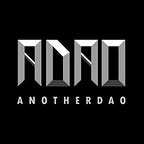The reason blockchain is well-known all around the world
Blockchain is a distributed, unchangeable database that makes the process of recording transactions and tracking assets in a corporate network more easier. A tangible asset (a house, car, cash, or land) can be intangible (intellectual property, patents, copyrights, branding). On a blockchain network, virtually anything of value can be recorded and traded, lowering risk and cutting costs for all parties involved.
The importance of blockchain:
Information is the lifeblood of business. The faster and more accurate it is received, the better. Because it delivers immediate, shareable, and entirely transparent information kept on an immutable ledger that can only be viewed by permissioned network users, blockchain is excellent for delivering that information. Orders, payments, accounts, production, and much more may all be tracked using a blockchain network. You can see all facts of a transaction end to end since members share a single view of the truth, providing you more confidence as well as additional efficiencies and opportunities.
1.There are various types of blockchain networks.
A blockchain network can be built in a variety of ways. They can be public, private, permissioned, or constructed by a group of people.
Blockchain networks open to the public
A public blockchain, such as Bitcoin, is one that anybody may join and participate in. Significant computer power is required, there is little or no privacy for transactions, and security is inadequate. These are crucial considerations for blockchain use cases in the industry.
Networks of private blockchains
A private blockchain network is a decentralized peer-to-peer network, comparable to a public blockchain network. However, the network is governed by a single organization, which determines who is authorized to participate, implements a consensus procedure, and maintains the shared ledger. Depending on the use case, this can greatly increase participant trust and confidence. A private blockchain can be used within a company’s firewall and even hosted on-site.
2. Blockchain networks with permissions
A permissioned blockchain network is typically set up by businesses who create a private blockchain. It’s worth noting that public blockchain networks can be permissioned as well. This limits who is authorized to engage in the network and what transactions they can do. To participate, participants must first get an invitation or authorization.
3. Blockchains in collaboration
The upkeep of a blockchain can be shared across multiple companies. Who can submit transactions or access data is determined by these pre-selected organizations. When all members need to be permissioned and share responsibility for the blockchain, a consortium blockchain is perfect.
4. Security on the blockchain
Blockchain network risk management systems
When developing an enterprise blockchain application, it’s critical to have a well-thought-out security plan that employs cybersecurity frameworks, assurance services, and best practices to mitigate the risk of attacks and fraud.
💥Follow us:
🔖 Website: https://anotherdao-exchange.web.app/
🔖 Telegram: https://t.me/AnotherDAO
🔖 Discord: https://discord.gg/NEPHnx793F
🔖 Medium: https://anotherdao.medium.com/
🔖 Facebook: https://www.facebook.com/anotherdao/
🔖 Twitter: https://twitter.com/Another_DAO
🔖Gitbook: https://anotherswap.gitbook.io/another-swap/
🔖Reddit: https://www.reddit.com/user/AnotherDAO_finance22/posts/
